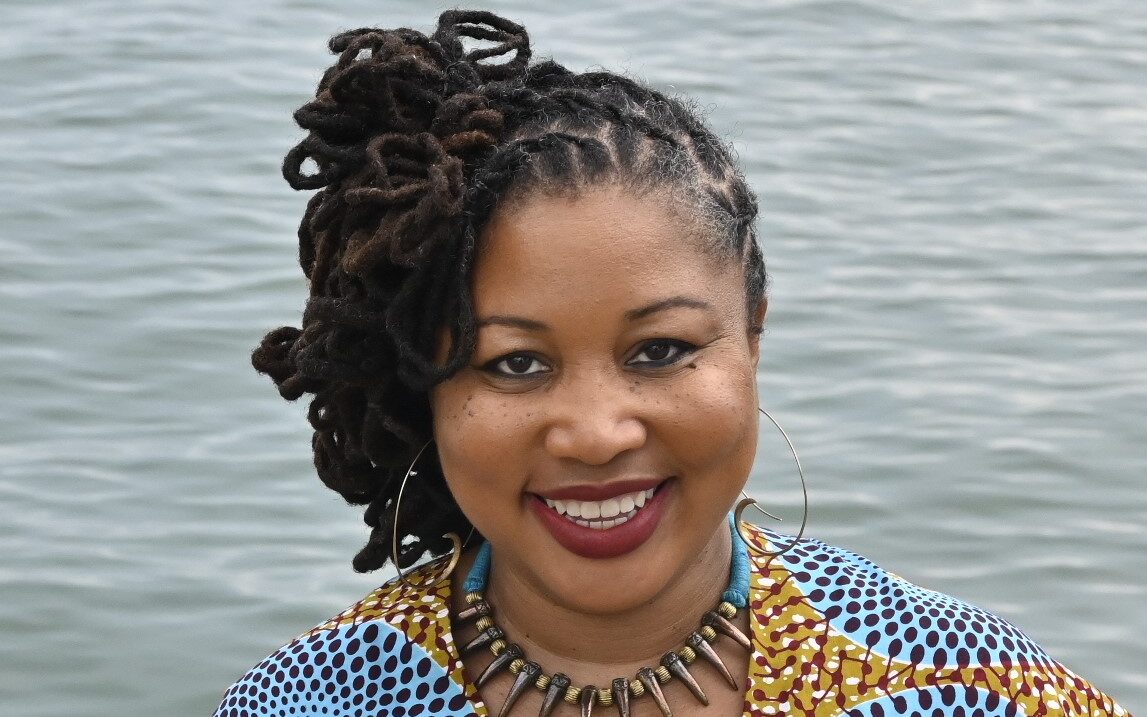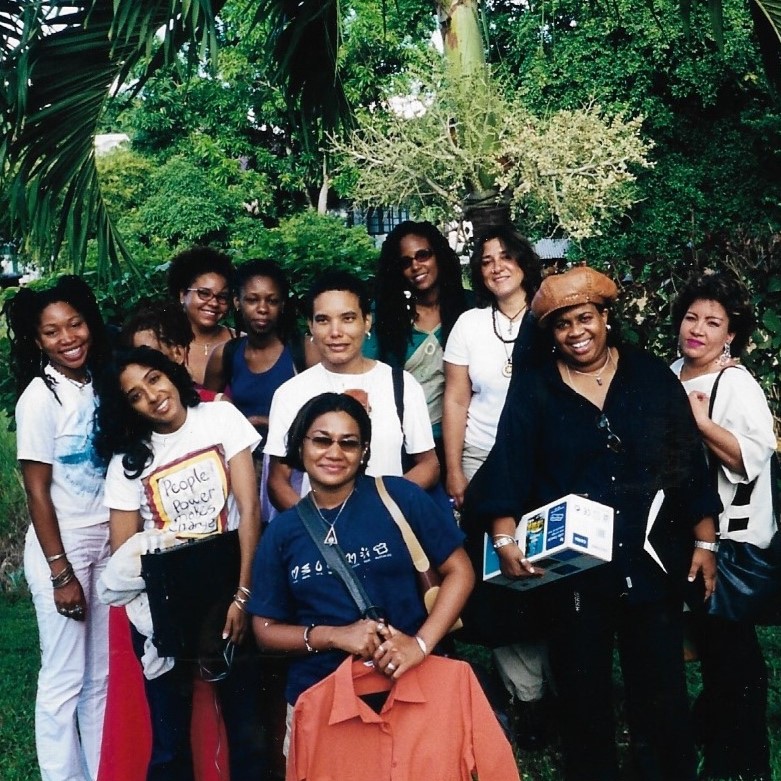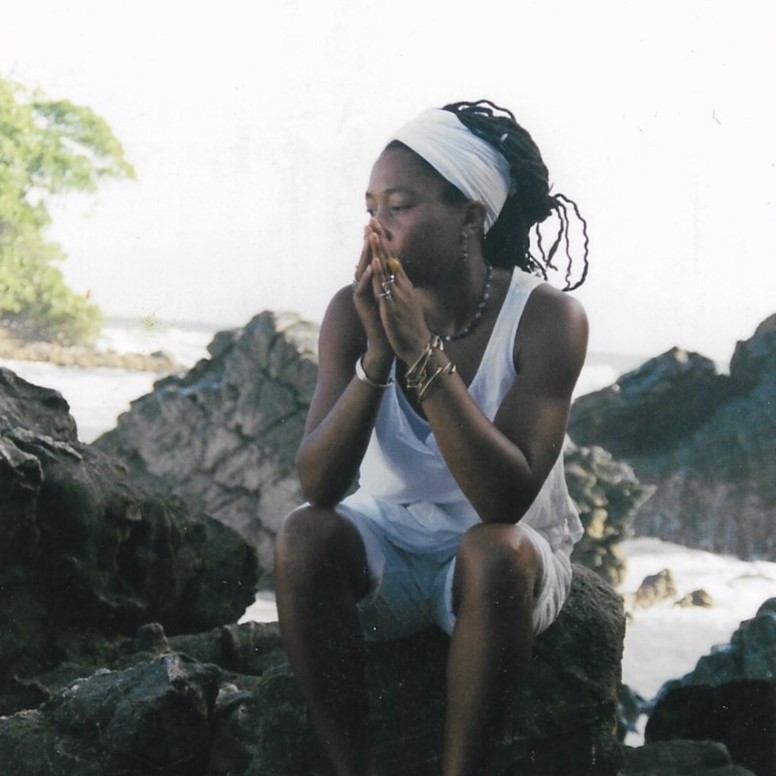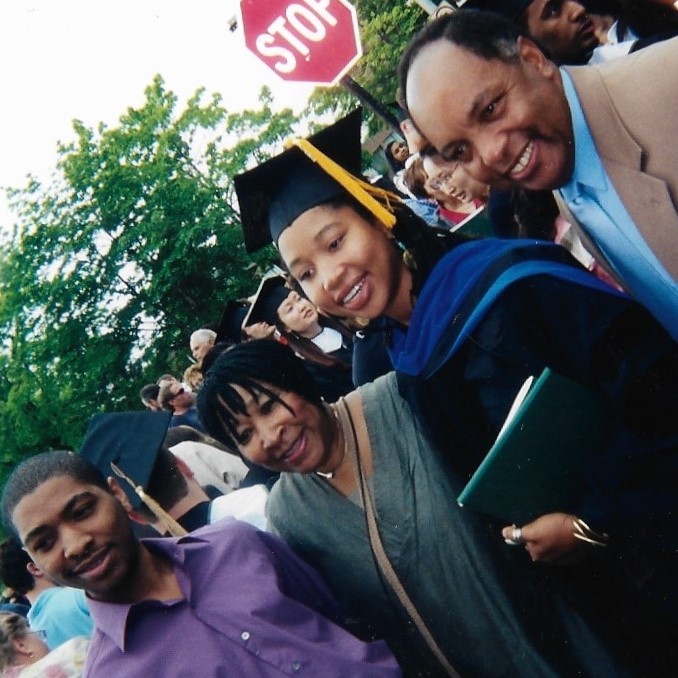Transforming the world through compassionate global learning
Dr. Keshia Abraham
Author; Consultant; International Educator; Scholar of the African Diaspora
Editor and Contributor, The Half Yet to Be Told: Study Abroad at HBCUs (Forum on Education Abroad, 2023) with Andrew P. Stevenson, Ph.D.
2001 Fulbright U.S. Student to Jamaica and Trinidad and Tobago in Comparative Literature; 2015 Fulbright U.S. Scholar to India

Keshia Abraham, Ph.D., founder and president of The Abraham Consulting Agency, calls herself a Black feminist J.E.D.I (Justice and Equity with Dignity and Intention) educator who is committed to facilitating personal and organizational development and intercultural growth. She has served as a tenured faculty member and has been a department chair, academic dean, and program director at several institutions, including Florida Memorial University, an HBCU. Before starting her own firm, she was the inaugural Senior Director of Diversity and Inclusion at the study abroad provider CIEE.
Her most recent book, The Half Yet to Be Told: Study Abroad at HBCUs (Forum on Education Abroad, 2023) co-edited with Andre P. Stevenson, Ph.D., celebrates Historically Black Colleges and Universities as innovators and practitioners of education abroad. Previous research has focused on the barriers that prevent HBCU students from participating at levels comparable to other institutions. However, Dr. Abraham and Dr. Stevenson focus on opportunities and gains made by HBCUs, highlighting research that shows the benefits of studying abroad for positive identity development, rural college engagement, and creating globally-engaged curriculum.
Dr. Abraham’s commitment to HBCUs started at an early age, as the daughter of two HBCU-educated educators. She earned a Bachelor’s degree in English, with an emphasis on Women’s Studies, at Spelman College. Her work is guided by a commitment to comprehensive internationalization and global learning, especially at HBCUs. This commitment is guided in no small part by her early-career experience as the recipient of two Fulbright awards.
In 2001, shortly after completing her Ph.D. in comparative literature, Dr. Abraham had a multi-country Fulbright U.S. Student Program award to Jamaica and Trinidad and Tobago. She credits her first Fulbright experience with her discovery of her own Caribbean heritage, which provided new insight into her family’s history and role in the African diaspora. As she was leaving for Jamaica, her uncle told her that her grandfather was from a place in Jamaica called Louisiana and not, as she had believed, from the U.S. State of Louisiana.
“I ended up finding so much through Fulbright,” Dr. Abraham says. “Stories in myself, stories in the community, stories from people that I met, who created new possibilities for how our histories have gotten scattered over time.”



In Jamaica and in Trinidad and Tobago, Dr. Abraham “met warrior queens and wise women in the African diaspora, particularly women writers, scholars, practitioners, culture keepers, and activists,” including noted Jamaican writer and sociologist Erna Brodber. Dr. Abraham wrote an essay inspired by her time with Brodber, and began developing a collection of essays from fellow scholars and authors on the topic of what it means to be a Caribbean woman writer. She published these essays and edited the volume, The Caribbean Woman Writer as Scholar: Creating, Imagining, Theorizing (Caribbean Studies Press, 2009).
She says that Fulbright has helped her think about how important these traditions and these kinds of opportunities are for “people like me from HBCUs.”
“We think about the opportunity to reconnect the African diaspora, and continue the work that HBCUs plant in us, and get us to really see the world and ourselves in it in a more holistic way.”
On the Fulbright-Nehru International Education Administrators program in India, she got to see firsthand how valuable and necessary it is to help spread the word about the breadth and depth of the education HBCUs can provide for students worldwide. “I will never forget the looks of awe and engagement with young women in India of darker complexions who weren’t prepared to consider someone who looks like me--and like them--as a professor, leader, academic… from America.”
Dr. Abraham reflects that Fulbright experiences have had a profound impact on her career, and those of other scholars. “Fulbright gives us the opportunity to do more research, to engage in scholarly activity with other people in community, sometimes to teach, to do a variety of things that are really helping one free oneself up as a scholar, and find what is your true work; what is your true influence; what is your true position; what is your true calling in this world?”
As an independent leader and elected council member at the Forum on Education Abroad, Dr. Abraham fulfills this call making international education more accessible; she has collaborated on working groups, presented at forums, seminars, and conferences on both international education and African diaspora literature all over the world. She is the recipient of the Forum’s Peter A. Wollitzer Award, and a member of IIE’s National Academy for International Education, a mission-driven learned society that seeks to make higher education a positive force in an increasingly interconnected world.
“I’m eternally grateful to Fulbright, and I think more of us need to have this experience.”